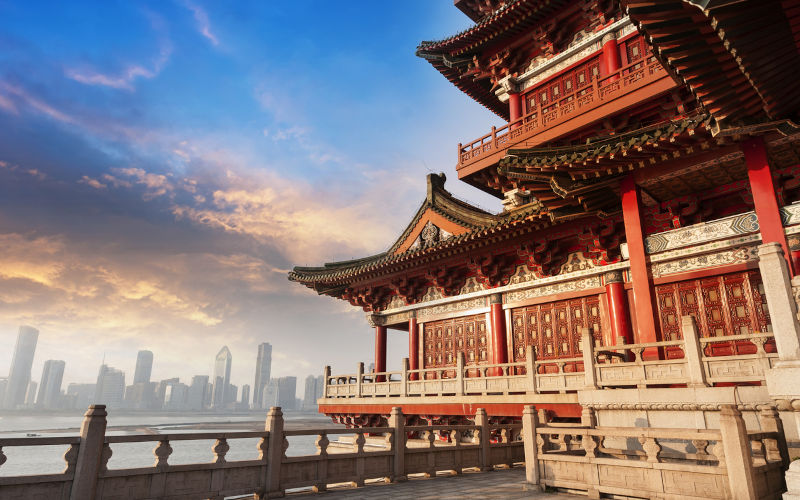China was never an imperialist state
April 23, 2024
During its long history, Chinese dynasties were as often the victims of outside aggression as they were invaders of foreign land.
Was China ever an imperialist state? There was in the past few weeks a lively debate between two scholars about precisely this question in Pearls and Irritations (P&I), the Australian current affairs online journal, with one arguing it was and the other it wasn’t.
It is, of course, a highly controversial question. In recent years, critics and apologists have tried to answer this question in the affirmative or negative to prove that contemporary China is either a benevolent or malevolent contemporary power, to prove or disprove “the China threat”.
On this particular point, it’s really a fool’s errand. As they always write into financial products sold to customers, “past performance is not indicative of future results”. The same goes with China or any other country. This doesn’t mean the past has no bearing on the present and future.
However, what really intrigues me about the P&I debate is not so much their conclusions, but the way they present their arguments and evidence.
When you have already drawn your conclusions, what you tend to do is to collect evidence that supports them and ignore or downplay evidence that doesn’t.
Now, I am not criticising those two scholars. I am just as guilty. I do that in this column space practically every day. And it’s almost inevitable we all do that.
Even so, it’s an intriguing historical question, if nothing else. Now, one scholar presents a laundry list of 46 instances – if I counted correctly – of China invading another tribe, people or nation, between the Qin unification in 221 BC and 1979.
Actually, I am not sure he wasn’t doing it in jest, as he must know he was citing different dynasties, some of which weren’t even ethnic Han or Chinese, though the notion of “Han Chinese” is itself deeply problematic.
“China” as an entity – with fixed boundaries and ethnic composition – certainly didn’t exist or persist continuously throughout this long period. I am not sure what his laundry list actually proves, if anything.
Meanwhile, the other scholar went through the list and disputed whether most of them qualified as “invasions”. He also distinguished between “invaded”, “conquered” and “colonised”.
Throughout history, different peoples and tribes fought and invaded each other all the time. But to qualify for imperialism, you have also to conquer and colonise successfully over an extended period of time to be worthy of the name. On this basis, many historians have concluded, I think correctly, that China was rarely if ever an imperialist power.
Still, the dynasties referred to themselves as empire and the guy at the top as emperor.
On this, though, it could be highly problematic to map directly the Western experience of empire, such as when we talk about the Spanish, Portuguese, British, or even the American empires.
The Chinese empire, through different dynasties, often functioned more like the opposite of an empire, and the oft-cited tribute system frequently worked in reverse.
What I mean is that while you can certainly cite cases of unmistakable Chinese aggression, often it was the Chinese empire of the day to which aggression was being directed.
During the Han and Tang dynasties, for example, daughters of noble families were often married off to their neighbouring northern tribal leaders. In fact, during the Han dynasty, a Xiongnu chief once demanded the hand of the widowed empress. That’s not what a serious imperialist power tends to do.
Han, Northern Zhou, Tang and Song dynasties regularly offered valuable “gifts” to their neighbours in what was clearly the reverse of the tribute system. At the very least, the offers sounded more like appeasement.
Between the third century BC and ninth century AD, the Xiongnu, Xianbei, Turks, and Uygurs were far more aggressive towards the Chinese dynastic core than the other way around.
And then there were the many outside groups or tribes that ended up conquering China and establishing their own dynasties, which are, of course, counted as part of ancient China’s continuing dynastic history. Among these are the Liao dynasty, the Jin dynasty, the Mongols, and the Qing, or Manchu.
I think looking at the actual history, you have to say no, China wasn’t (much) of an imperialist empire, or a singularly unsuccessful one. Alternatively, you could argue that despite its self-identification as an empire, the word needs to be understood very differently from the Western historical experience.
Editors’ note: The checklist of Chinese invasions in the last 2,200 years in Percy Allan’s article, referenced by Alex Lo in this post, was compiled by a different author. Allan analysed only those in the last 200 years and concluded they did not involve conquering and occupying a foreign nation, the hallmark of imperialism.
First published in South China Morning Post, on 16 April, 2024
Pearls & Irritations recommends:
https://publish.pearlsandirritations.com/is-china-an-imperialist-nation/
https://publish.pearlsandirritations.com/chinese-imperialism/

